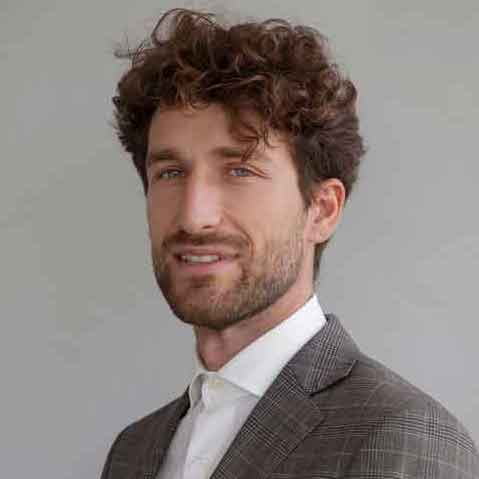If organizations built sustainability into purchasing, they could transform markets. This podcast describes how to realize that potential.
When organizations embed sustainability into purchasing decisions, they change how suppliers operate and the goods and services they provide.
But sustainable purchasing has been slow to spread.
In Canada, a multi-sector collaboration is trying accelerate action. It’s focused on changing procurement by government and other organizations — and leveraging that action to transform the market. The collaboration focuses on sustainable procurement and the emerging practice of circular procurement.
In this podcast, we talk with two champions of this effort. Our guests are Frances Edmonds, head of sustainable impact at HP Canada, and Monica Da Ponte, head of consultancy Shift and Build. They’re interviewed by Jury Gualandris, a professor at Ivey Business School.
Find out how procurement can change the world — and how to move it to center stage.
Listen to the Podcast
On the go? Listen to this podcast on Spotify or iTunes.
Conversation Highlights:
Jury Gualandris: What are sustainable and circular procurement?
Monica Da Ponte: Both try to advance an array of sustainable priorities. One difference is that sustainable procurement includes social and environmental considerations; circular procurement focuses on environmental issues. Also, circular procurement is trying to shift the structure of our economy, from a model that is take, make, waste, to a closed loop.
Jury: Why is procurement important for sustainability?
Monica: Procurement happens at a huge scale. For example, in Canada, public procurement currently represents 13 per cent of Gross Domestic Product (GDP). Also, procurement is an existing function with established processes, policies, and mechanisms where sustainability can be integrated. So, we think it is a high impact, low cost tool to help advance sustainability.
Frances Edmonds: Let’s use the capitalist system to make the invisible hand of the market work for us in the space. If procurement had sustainability requirements, pretty quickly businesses in Canada would respond. Business is really good at responding to what our customers ask us to do.
Jury: What progress has the Canadian government made on procurement?
Monica: For 25 years, the federal government has been stating that there’s an opportunity in this space. In 1995, the government identified green procurement as a priority area, and in 2006, it established a green procurement policy, updated in 2018. There’s a new federal Centre for Greening Government. But these statements haven’t really manifested in significant implementation.
Frances: Sustainability is not meaningfully integrated in government requests for proposals (RFPs), or supplier solicitation. Only 12 per cent of the government RFPs that we have reviewed, with collaborators at Schulich Business School, have sustainability as an independent criterion. So there’s huge opportunity. Even if we just did a little bit, it has the potential to really move the needle here.
Jury: Why hasn’t more progress been made?
Frances: It’s like many of our “wicked” problems. It’s multifactorial. If it were easy, it would have been done. I think also we actually have a knowledge deficit across Canada. If you took a typical C-suite, let’s assume they had some goals around sustainability. They wouldn’t look to procurement as being one of the tools that they could leverage to meet those sustainability goals. It’s not in people’s psyche to even think that way.
Existing accounting also doesn’t support action. Today, most procurement is done solely based on initial purchase price. But if you’re buying one of HP’s products, it will cost you to run it during the lifetime of the product, and then you’re going to have to do something with it when it reaches the end of its first life. The full cost to the organization (and to society at large) isn’t considered at the front end of the purchasing cycle. You end up with a mini tragedy of the commons within an organization, because they’re not doing that full cost accounting.
And there are few ready-made tools necessary to help get people there. If you’re a procurement person who’s buying computers through to dishwashers, to carpet — how do you have the expertise to be able to know what sustainability leadership is?
Monica: We interviewed a range of stakeholders, including representatives of procurement. One of the key barriers we heard is that “it’s not part of my job.” If sustainable procurement isn’t integrated into managers’ responsibilities formally, if they’re not being evaluated on it. it’s really just not going to happen. Sustainability has not yet bubbled to the priority level that it needs to be.
It’s not to say that that no work is happening. There has been great work by leaders in the in this field — for example, ECPAR in Quebec has built a community of practice advancing sustainable procurement. The Circular Innovation Council is working with municipalities on circular procurement. What we’re saying is that, in the grand scheme of things, deep integration at scale is not happening.
Jury: How are you working to change public procurement?
Monica: What we heard from the key stakeholders we’re working with is that there’s very limited resources to advance this work. So, we used federal funding to convene key actors in the space to form the Coalition for Advancement of Sustainable Procurement.
The players that we’re working with right now are Anne Marie Saulnier, who leads ECPAR, Tim Reeve who leads the Canadian Collaboration for Sustainable Procurement, Jo-Anne St. Godard who leads Circular Innovation Council, Sandra Hamilton, who is working with Ontario Public Buyers Association, as well as Leor Rothschild who leads Canadian Business for Social Responsibility.
We’re looking at procurement at every level of government.
Jury: What’s your strategy for making this collaboration work?
Monica: The individuals we’re working with are leaders. They’re passionate, they’re committed to advancing sustainable procurement, they’ve been trying to do this for years. They have an end vision in mind.
Within the coalition, there is an openness to collaborate and an openness to work independently. It’s not mandated that we have to work on exactly the same thing to approach this problem. What we’re trying to do is identify opportunities to collaborate that will be synergistic.
Over seven months, we have been meeting regularly to develop a collective strategy on how to advance sustainable procurement. (We talk about sustainable procurement, but the work we have done is equally applicable to circular procurement.) And the strategy includes everything from leadership commitments, to profile-raising efforts, to integrating best practices into policy, to engaging with suppliers on different categories.
The other element we need is funding to enable continued collaboration and project development.
Why has HP Canada taken a leadership role?
Frances: HP is in the midst of a vast transformation of our business to be a circular business. And I’m convinced that customers increasingly want to buy this way. They just don’t know how to do that and their existing procurement systems don’t allow them to do it. I feel if we can unlock sustainable procurement, it will create the demand for more circular solutions and better products.
Additional Resources
What is the circular economy? (Ellen MacArthur Foundation)
Sustainable procurement (International Standards Organization)
Sustainable procurement toolkit (Bob Willard, Sustainable Advantage)
Circular procurement (European Commission)
Supply chain 2030 (Jury Gualandris)
Using supply chains for sustainability (Jury Gualandris)
Public procurement, a powerful tool for sustainable development (The Guardian)
Jury Gualandris notes: This approach could be tremendously useful in other countries too, especially those that are classified as “low-income” or developing, where governments account for as much as 33% of the GDP. Two articles address this: Is public procurement a rich country’s policy? (World Bank) and Green Public Procurement in China: Quantifying the benefits (International Institute for Sustainable Development).
About the Participants
Frances Edmonds is head of Sustainable Impact for HP Canada. She is responsible for overseeing HP’s full suite of corporate social responsibility programs, including strategic partnerships with key nonprofit organizations and an industry leading volunteer program. Under Frances’s leadership, HP became the most sustainable technology company in Canada in 2018.
Frances works closely with HP’s many partners to drive sustainable practices across HP’s business and throughout Canada. From being a founder of WWF’s Living Planet @ Work and Living Planet @ Campus programs to her TEDx talk demonstrating the power of collaboration, Frances seeks new and innovative ways to leverage the power of HP to create meaningful change across Canada.
Monica Da Ponte is the founder of Shift & Build, a boutique consultancy focused on helping to advance social change. She has a passion for creating systems change solutions and has demonstrated success in strategic planning, designing award-winning sustainability programs and creating shared value through partnerships.
Monica is also an adjunct professor at the Schulich School of Business. Monica holds both a Masters and Bachelor of Business Administration from the Schulich School of Business.
Dr. Jury Gualandris is assistant professor, Operations Management & Sustainability, at the Ivey Business School. Jury’s research has considered how sustainability can develop and diffuse across firms through sustainable procurement.
Currently, Jury studies the institutional, operational and economic challenges associated with the development and functioning of circular supply chains. Circular supply chains consist of multiple companies that go beyond recycling and reusing to collectively prioritize the reduction of products and materials in order to minimize the proportion of waste that goes to landfills. He focuses on the role of business leaders and NGOs in transformational change.



Add a Comment
This site uses User Verification plugin to reduce spam. See how your comment data is processed.This site uses User Verification plugin to reduce spam. See how your comment data is processed.